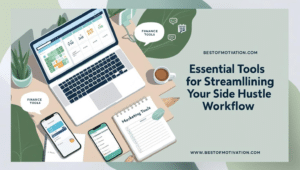How to Save Money on a Tight Budget 💵
Managing finances can be challenging, especially for Gen Z navigating rising living costs. This guide offers practical tips to help you save, budget, and make smarter financial decisions without compromising on the things that matter.
Did You Know? 📊 32% of Gen Z has savings below $1,000, emphasizing the importance of financial planning. [Source]
Create a Realistic Budget 📝
Creating a budget is the first step to managing your finances effectively. Here’s how to start:
- Track all your income and expenses for a month using apps like Mint.
- Organize expenses into categories: essentials, savings, and leisure.
- Follow the 50/30/20 rule: 50% for necessities, 30% for wants, and 20% for savings.
Fact: 79% of Gen Z prefers managing finances through mobile apps. [Source]
Cut Unnecessary Expenses ✂️
Review your monthly expenses and identify areas to reduce costs:
- Cancel subscriptions you no longer use.
- Switch to generic brands for groceries and essentials.
- Reduce utility bills by conserving energy at home.
Meal Prep to Save on Food Costs 🍎
Meal prepping not only saves money but also promotes healthier eating habits:
- Cook meals in bulk to avoid daily takeout.
- Use apps like Ibotta or Flipp for grocery discounts.
- Plan meals for the week to reduce food waste.
Stat: Meal prepping can save individuals up to $2,500 annually compared to dining out. [Source]
Take Advantage of Cashback and Savings Apps 📱
Boost your savings with these free tools:
- Honey: Find discount codes while shopping online.
- Rakuten: Earn cashback on everyday purchases.
- Toshl Finance: Track expenses and control your spending.












